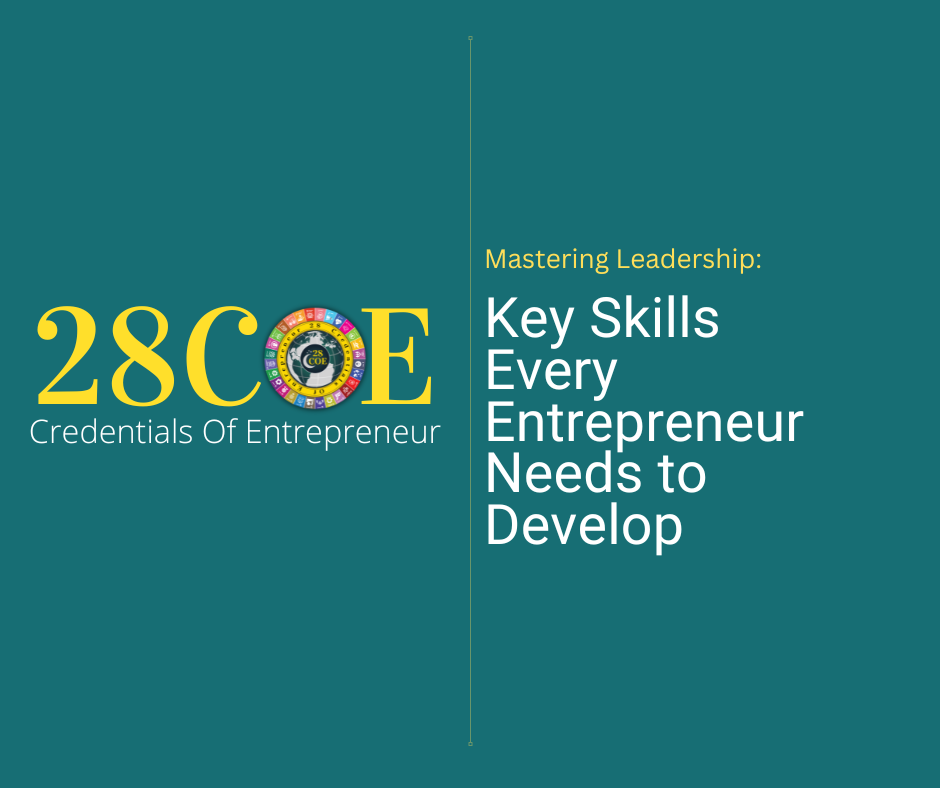Introduction: In the dynamic landscape of entrepreneurship, effective leadership is the cornerstone of success. As an entrepreneur myself and the founder of BAB Group of Companies, I’ve navigated the complexities of business leadership firsthand. Through years of experience, I’ve identified key leadership skills that are indispensable for entrepreneurs striving to make their mark in the business world. In this comprehensive guide, I’ll outline actionable strategies to develop these skills and empower you to lead with confidence and competence.
- Visionary Thinking:
- Understand the Power of Vision: A strong vision serves as a guiding light, inspiring both you and your team towards a common goal. Take time to articulate a compelling vision for your venture, envisioning its future trajectory and impact.
- Communicate Effectively: Share your vision with clarity and enthusiasm, rallying others around it. Utilize various communication channels – from team meetings to presentations – to ensure everyone is aligned with your vision.
- Stay Agile: While it’s essential to have a clear vision, remain flexible enough to adapt to changing circumstances. Embrace innovation and be willing to pivot when necessary to keep your vision relevant.
- Strategic Planning:
- Set Clear Goals: Break down your overarching vision into actionable goals and milestones. Define SMART (Specific, Measurable, Achievable, Relevant, Time-bound) objectives that provide a roadmap for success.
- Analyze and Anticipate: Stay informed about market trends, competitor strategies, and industry developments. Conduct thorough SWOT (Strengths, Weaknesses, Opportunities, Threats) analyses to identify strategic opportunities and potential challenges.
- Delegate Wisely: As a leader, you can’t do everything yourself. Delegate tasks to capable team members, leveraging their strengths to achieve collective goals. Trust your team and provide them with the autonomy to excel.
- Effective Communication:
- Listen Actively: Cultivate the skill of active listening, paying attention to both verbal and non-verbal cues. Encourage open dialogue within your team, valuing diverse perspectives and fostering a culture of inclusivity.
- Provide Constructive Feedback: Offer feedback in a constructive manner, focusing on specific behaviors and outcomes. Be receptive to feedback yourself, continuously seeking opportunities for personal and professional growth.
- Lead by Example: Your actions speak louder than words. Model the communication style and behaviors you wish to see in others, demonstrating authenticity, transparency, and integrity.
- Decision Making:
- Embrace Data-driven Decisions: Gather relevant data and insights to inform your decision-making process. Leverage analytics, market research, and performance metrics to make informed choices that minimize risk and maximize opportunities.
- Assess Risks and Rewards: Understand that every decision involves a degree of risk. Evaluate the potential risks and rewards associated with each option, weighing the short-term gains against long-term implications.
- Be Decisive: Avoid analysis paralysis by setting deadlines for decision-making and taking decisive action when necessary. Trust your instincts, but also seek input from trusted advisors or mentors to gain additional perspective.
- Emotional Intelligence:
- Develop Self-awareness: Take time for self-reflection to understand your own emotions, strengths, and areas for growth. Recognize how your emotions influence your behavior and decision-making process.
- Cultivate Empathy: Empathy is the ability to understand and share the feelings of others. Practice active empathy by putting yourself in the shoes of your team members, clients, and stakeholders, fostering stronger relationships built on trust and understanding.
- Manage Conflict Effectively: Conflict is inevitable in any organization, but how you handle it can make all the difference. Approach conflicts with empathy, seeking to understand the underlying concerns and finding mutually beneficial solutions.
- Team Building and Motivation:
- Inspire and Empower: Create a positive work environment where team members feel valued, respected, and motivated to excel. Recognize and celebrate their achievements, providing constructive feedback and opportunities for growth.
- Foster Collaboration: Encourage collaboration and teamwork by promoting a culture of openness, cooperation, and shared goals. Break down silos and encourage cross-functional communication to maximize productivity and innovation.
- Lead with Purpose: Align your team’s efforts with a larger sense of purpose beyond financial gain. Clearly articulate the values and mission of your organization, inspiring your team to make a meaningful impact in the world.
Conclusion: Leadership is a journey of continuous growth and learning. By honing these key skills – visionary thinking, strategic planning, effective communication, decision-making, emotional intelligence, and team building – entrepreneurs can elevate their leadership capabilities and drive sustainable success in today’s competitive landscape. As the founder of BAB Group of Companies, I encourage you to embrace these principles and lead with purpose, passion, and perseverance.

